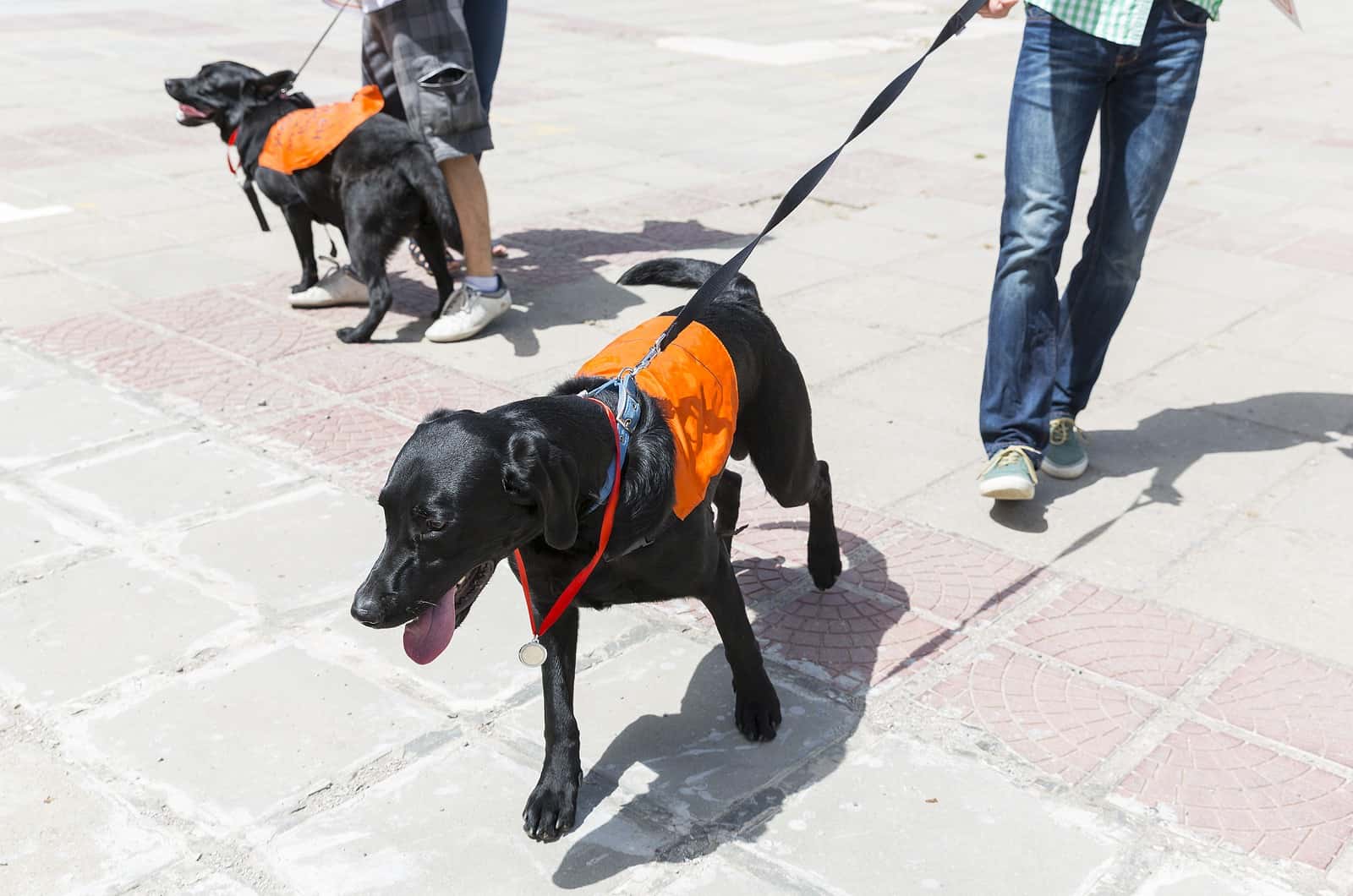
Post-traumatic stress disorder (PTSD) offers serious challenges to veterans returning to civilian life after combat. Those who suffer from this problem are always vigilant and find it difficult or impossible to relax. They may experience flashbacks of the trauma at unexpected times. PTSD puts people at risk for other psychiatric disorders, even if they never had any previously. The FDA has just turned down one company’s bid to use the psychotropic drug MDMA to treat PTSD. Research indicates, however, that veterans with service dogs respond better to therapy for PTSD than those who receive therapy alone.
Service Dogs for PTSD:
In a new study of 156 veterans or military members with PTSD, researchers compared the outcomes of treatment between 81 veterans who received service dogs and 75 people who did not (JAMA Network Open, June 4, 2024). All were individuals who had contacted the nonprofit group K9s For Warriors that provides dogs to veterans. The control group consisted of people who were placed on the wait list for the duration of the trial. Those paired with service dogs started with three weeks of instruction (40 hours per week) in how to care for, train and interact with their dogs.
Veterans were assessed at the beginning of the study and after three months by psychiatrists who did not know which individuals had been working with dogs and which had not. In addition to PTSD symptoms, the investigators evaluated psychosocial functioning, such as quality of life and social health.
By the close of the trial, veterans in the intervention had less severe symptoms of PTSD, lower levels of depression and anxiety and better psychosocial functioning, for the most part. These differences were significant. Dogs did not suit everyone, however. Eight of the volunteers paired with a dog at the outset of the trial returned the dog during the course of the study. This dropout rate is substantially lower than the usual attrition from PTSD intervention studies.
What Are Service Dogs?
According to the researchers, these special animals, known internationally as assistance dogs, undergo important training so that they can help the humans with whom they work. Studying the use of dogs presents some difficulties, however. Placebo dogs are not practical. Thus, the study was designed so that the experts evaluating the volunteers were “blinded,” even though the participants were not.
What Did We Learn?
As the scientists point out, three months is a surprisingly short period of time in which to see a benefit for PTSD. In addition, it is a much shorter period than most dog-human partnerships. These generally last for years.
The investigators conclude:
“Based on standardized self-reported and clinician-assessed symptom severity, service dog partnership may serve as an effective complementary intervention for military service–related PTSD.”
An effective intervention for PTSD is certainly welcome. We suspect that pairing service dogs with supportive care might benefit many people with PTSD, not only veterans.
Citations
- Leighton SC et al, "Service dogs for veterans and military members with posttraumatic stress disorder: A nonrandomized controlled trial." JAMA Network Open, June 4, 2024. DOI: 10.1001/jamanetworkopen.2024.14686

